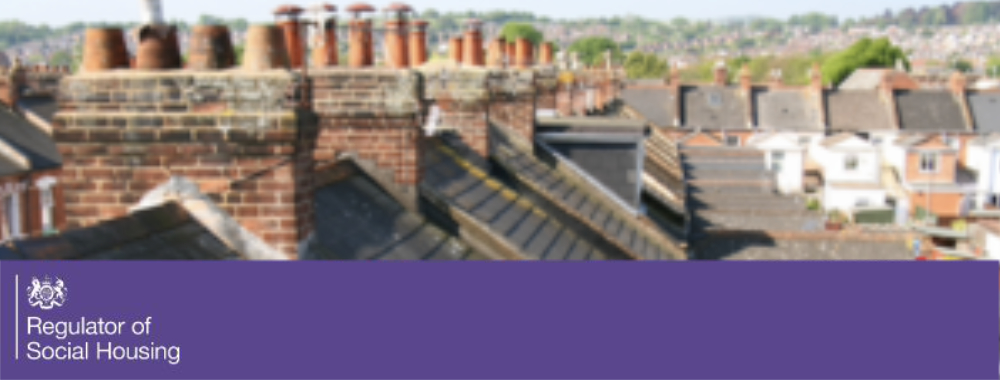Social landlords continue to build new homes, according to RSH statistics
At the end of October 2024 the Regulator of Social Housing published statistics about the social housing sector, including stock ownership and rents as of 31 March 2024. Returns from all private and local authority registered providers show that the sector provides around 4.5 million homes across England, with a net increase of nearly 43,000 social homes since 2023.
This overall increase has been driven by approximately 24,800 more Affordable Rent homes and 17,300 more low cost home ownership homes. There was also a small increase of roughly 700 social rent homes.
Private registered providers had a net gain of around 5,200 social rent homes, although this was partially offset by a decrease of around 4,500 social rent homes for local authorities (likely to be driven by right to buy sales and other schemes). Private registered providers built, purchased or acquired the majority of new homes in the sector, accounting for 85% of the total increase in Affordable Rent and 96% for low cost home ownership properties.
The statistics show that 82% of social homes in England are general needs (social rent and Affordable Rent), while supported housing makes up 11% and Low Cost Home Ownership 6%. Private registered providers also reported that 71% of homes had an energy efficiency certificate rating of EPC-C or above, and a further 22% had a rating of EPC-D.
Just over 511,000 homes were surveyed by landlords during the year. Over the year, these surveys and other provider activity identified nearly 42,000 homes which did not meet the Decent Homes Standard; 37,500 properties were remediated to bring them up to the DHS and 1,800 were sold or demolished.
A further 5,200 buildings were excluded from having to meet DHS requirements due to circumstances which prevent or limit remediation works.
As expected, rents increased over the year. The average increase in general needs (social rent) average weekly net rents was 7.2% between 31 March 2023 and 31 March 2024 (in line with the limit set for 2023/24 ). The average weekly general needs rent in England was £105.22, though this varied across the country. Average rents were lowest in the North East (£88.11) and highest in London (£129.83). Rents for local authorities are lower on average than for housing associations.
Will Perry, Director of Strategy atRSH, said:
"It is reassuring to see the sector continuing to build and acquire much-needed new social homes across the country, despite a challenging economic environment. This data provides a rich source of insight into the sector as a whole, helping us understand the challenges facing both landlords and tenants. Landlords should ensure they hold accurate, up-to-date data to inform strategic decisions, especially around rents and the condition of homes. "
This article was issued via Press Release as 'Social landlords continue to build new homes, according to RSH statistics' dated 29 October 2024.
[edit] Related articles on Designing Buildings
- 2024 Autumn Budget.
- Affordable housing.
- Affordable rented housing.
- Build to rent best practice guide.
- Design Council Homes Taskforce launched to support 1.5 million homes target within UK climate commitments.
- Help to buy.
- Housing associations.
- Local authority.
- Public v private sector housing.
- Reactions to the Autumn Budget announcement.
- Regulator of Social Housing.
- Regulator of Social Housing publishes regulatory judgements for ten landlords.
- Right to acquire.
- Right to buy.
- Right to rent.
- Shared ownership.
- Social housing.
- Tenant.
- Tenant management organisation.
Featured articles and news
One of the most impressive Victorian architects. Book review.
RTPI leader to become new CIOB Chief Executive Officer
Dr Victoria Hills MRTPI, FICE to take over after Caroline Gumble’s departure.
Social and affordable housing, a long term plan for delivery
The “Delivering a Decade of Renewal for Social and Affordable Housing” strategy sets out future path.
A change to adoptive architecture
Effects of global weather warming on architectural detailing, material choice and human interaction.
The proposed publicly owned and backed subsidiary of Homes England, to facilitate new homes.
How big is the problem and what can we do to mitigate the effects?
Overheating guidance and tools for building designers
A number of cool guides to help with the heat.
The UK's Modern Industrial Strategy: A 10 year plan
Previous consultation criticism, current key elements and general support with some persisting reservations.
Building Safety Regulator reforms
New roles, new staff and a new fast track service pave the way for a single construction regulator.
Architectural Technologist CPDs and Communications
CIAT CPD… and how you can do it!
Cooling centres and cool spaces
Managing extreme heat in cities by directing the public to places for heat stress relief and water sources.
Winter gardens: A brief history and warm variations
Extending the season with glass in different forms and terms.
Restoring Great Yarmouth's Winter Gardens
Transforming one of the least sustainable constructions imaginable.
Construction Skills Mission Board launch sector drive
Newly formed government and industry collaboration set strategy for recruiting an additional 100,000 construction workers a year.
New Architects Code comes into effect in September 2025
ARB Architects Code of Conduct and Practice available with ongoing consultation regarding guidance.
Welsh Skills Body (Medr) launches ambitious plan
The new skills body brings together funding and regulation of tertiary education and research for the devolved nation.
Paul Gandy FCIOB announced as next CIOB President
Former Tilbury Douglas CEO takes helm.























